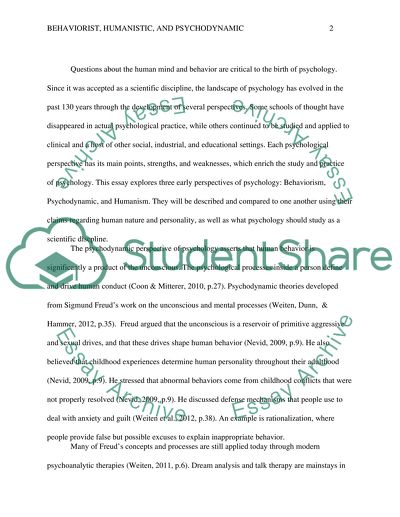Cite this document
(“Behaviorist, Humanistic, and Psychodynamic Perspectives of Psychology Assignment”, n.d.)
Retrieved from https://studentshare.org/psychology/1456264-three-early-perspectives-of-psychology
Retrieved from https://studentshare.org/psychology/1456264-three-early-perspectives-of-psychology
(Behaviorist, Humanistic, and Psychodynamic Perspectives of Psychology Assignment)
https://studentshare.org/psychology/1456264-three-early-perspectives-of-psychology.
https://studentshare.org/psychology/1456264-three-early-perspectives-of-psychology.
“Behaviorist, Humanistic, and Psychodynamic Perspectives of Psychology Assignment”, n.d. https://studentshare.org/psychology/1456264-three-early-perspectives-of-psychology.


